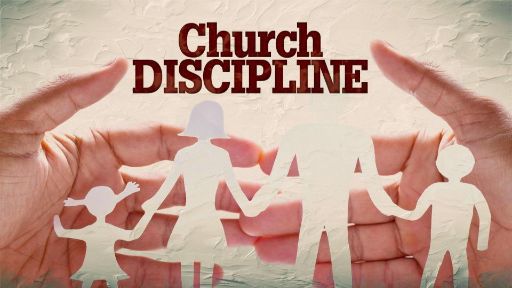-
You Gotta Have The "Want-To"
Contributed by Scott Carroll on Nov 28, 2017 (message contributor)
Summary: GIVES US EXAMPLES FROM THE BOOK OF ACTS ON THE IMPORTANCE OF CHURCH ATTENDANCE.
CHURCH ATTENDANCE
YOU GOTTA HAVE THE “WANT TO”
And they continued stedfastly in the apostles’ doctrine and fellowship, and in breaking of bread, and in prayers" (Acts 2:42). "I want to be a worker for the Lord, I want to love and trust His holy word; I want to sing and pray, and be busy every day In the kingdom of the Lord. I will work, I will pray In the vineyard, in the vineyard of the Lord; I will work I will pray, I will labor every day In the vineyard of the Lord," says the first stanza of the popular song: "I Want To Be A Worker."
The Book of Acts is called by many names which attest to its uniqueness among the great company of epistles comprising the Holy Bible. These designations include: the Hub of the Bible, the Book of Conversions and the History of the First Century Church. Therefore, the Book of Acts is an appropriate place to begin a study of "Want-To-Religion And Church Attendance."
The Lord’s church is first acknowledged in Scripture (KJV) in the present tense, already in existence, in Acts 2:47. Before Acts Two, references to the church clearly indicate the church was not yet established (e.g., Matthew 16:18). The church, or kingdom as it was sometimes called (Matthew 16:18-19), was still only a promise in Acts 1:8. However, the Lord’s promise that it should be established with power (Mark 9:1; Matthew 18:18) was fulfilled when the apostles received the baptism of the Holy Spirit in Acts Two (verses 1-4). The power with which the Lord’s church was established or the "keys of the kingdom" (Matthew 16:18-19) began to be demonstrated when the apostles miraculously spoke in languages that they had not studied, styled "tongues" (Acts 2:5-13).
Church Attendance in Acts Two
The Gospel was initially preached in Jerusalem, per Old Testament prophecy (Isaiah 2:2, 3). The first recorded Gospel sermon appears in Acts 2:14-40. Believers were baptized and the Lord added them to the church (Acts 2:41-47). These early Christians enjoyed a close religious and social fellowship (Acts 2:42). Their worship and study assemblies were frequent (often daily, verse 46). Faithful attendance was not a matter of regulation then, as it later became in the context of which Hebrews 10:25 is a part. Christians eagerly assembled for public worship and study, (i.e. in the temple, and in more private settings, from house to house) because they possessed "want-to-religion." This pervading attitude also led these disciples to prefer one another in brotherly love (Romans 12:10), love the brotherhood (1 Peter 2:17) and develop a like precious faith (2 Peter 1:1).
Church Attendance in Acts Four and Five
Upon the apostles’ release from prison and before the Sanhedrin, they returned "to their own company" (4:23) which was "assembled together" (4:31). This was not conclusively a Lord’s Day worship assembly though they were teaching or preaching and praying (Acts 4:23-32). "And the multitude of them that believed were of one heart and one soul . . ." (4:32).
Public preaching continued on Solomon’s Porch of the Temple area (5:12-16). Regular assembling, teaching, worshipping and miracles confirming the Word of God resulted in many men and women being added to the multitude of the church. ". . . and they were all with one accord in Solomon’s Porch . . . And the believers were the more added to the Lord, multitudes both of men and women" (5:12, 14). "And daily in the temple, and in every house, they ceased not to teach and preach Jesus Christ" (5:42). The early church met daily in public (the Temple) and in private (in every member’s home). These daily assemblies included both preaching (formal teaching, usually of a public nature) and teaching (usually less formal than preaching and often in private settings).
From Acts Chapters Four and Five one must conclude: (1) The church was still meeting frequently, not just for Lord’s Day worship. (2) The church’s frequent assembling was not based on "compulsory motivation," but "want-to-religion"; there was an absence of admonition to assemble regularly in the presence of the "want-to" principle. (3) The key to "want-to-religion" and the enthusiasm which prompted the early church to assemble regularly was that the multitude which believed was of "one heart and of one soul" (4:32), truly "one," enjoying unity (John 17:21) and they possessed a disposition to "speak the same thing," have "no divisions" and "be perfectly joined together in the same mind and in the same judgment" (1 Corinthians 1:10).
Church Attendance in Acts Six:
"And in those days, when the number of the disciples was multiplied . . . And the word of God increased; and the number of the disciples multiplied in Jerusalem greatly; and a great company of the priests were obedient to the faith" (6:1, 7). By Chapter Six, the early church graduated from addition (Acts 2:47; 5:14) to multiplication. "Want-to-religion" had become contagious! Frequent attendance was edifying and resulted in spiritual and numerical growth.

 Sermon Central
Sermon Central



